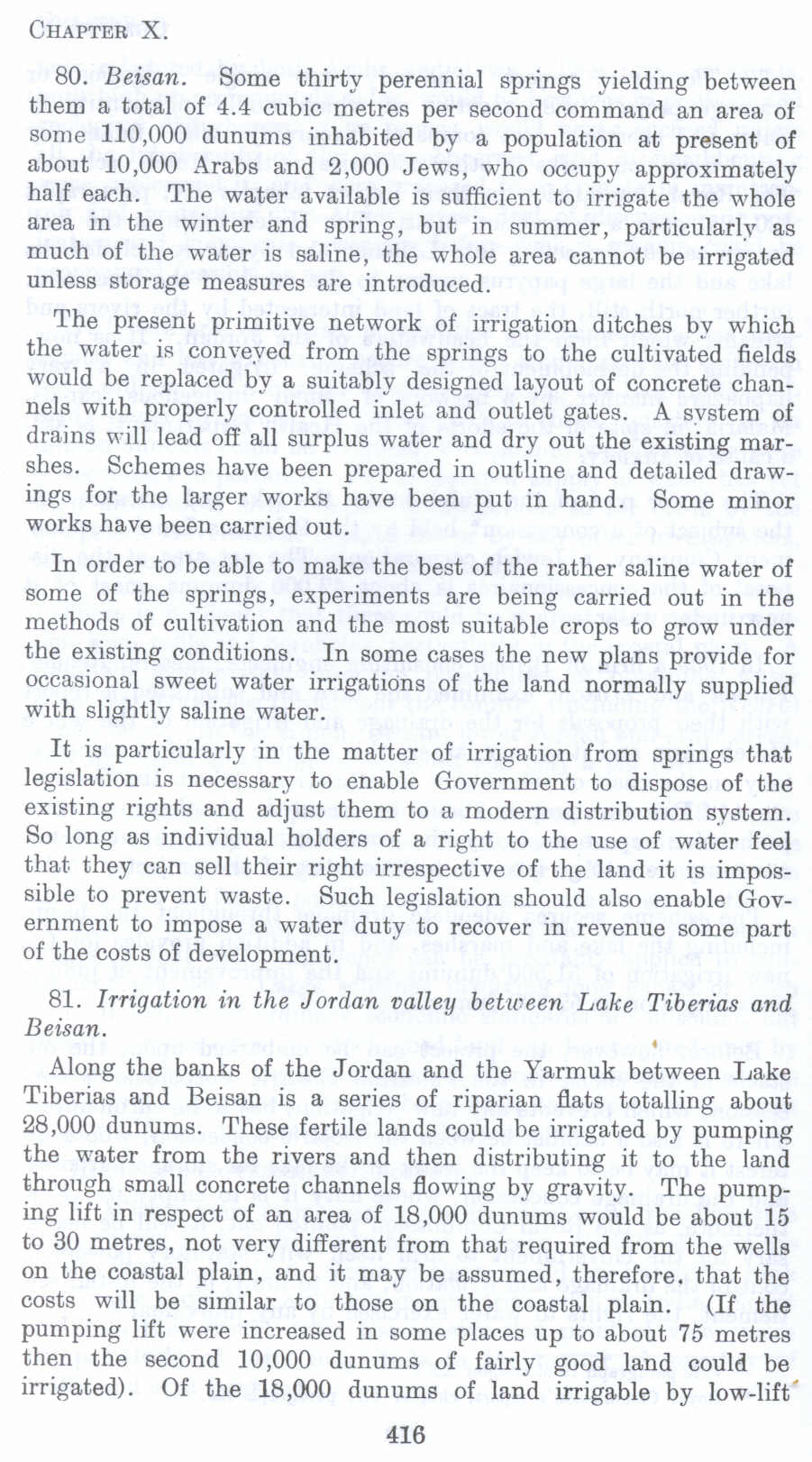| Prev | Next |  |
| Prev | Next |
| PalestineRemembered | About Us | Oral History | العربية | |
| Pictures | Zionist FAQs | Haavara | Maps | |
| Search |
| Camps |
| Districts |
| Acre |
| Baysan |
| Beersheba |
| Bethlehem |
| Gaza |
| Haifa |
| Hebron |
| Jaffa |
| Jericho |
| Jerusalem |
| Jinin |
| Nablus |
| Nazareth |
| Ramallah |
| al-Ramla |
| Safad |
| Tiberias |
| Tulkarm |
| Donate |
| Contact |
| Profile |
| Videos |
British Mandate: A Survey of Palestine: Volume I - Page 416 |
Disclaimer
The above documents, article, interviews, movies, podcasts, or stories reflects solely the research and opinions of its authors. PalestineRemembered.com makes its best effort to validate its contents.


Post Your Comment
*It should be NOTED that your email address won't be shared, and all communications between members will be routed via the website's mail server.
80. Beisan. Some thirty perennial springs yielding between them a total of 4.4 cubic metres per second command an area of some 110,000 dunums inhabited by a population at present of about 10,000 Arabs and 2,000 Jews, who occupy approximately half each. The water available is sufficient to irrigate the whole area in the winter and spring, but in summer, particularly as much of the water is saline, the whole area cannot be irrigated unless storage measures are introduced.
The present primitive network of irrigation ditches by which the water is conveysd from the springs to the cultivated fields would be replaced by a suitably designed layout of concrete channels with properly controlled inlet and outlet gates. A system of drains will lead off all surplus water and dry out the existing marshes. Schemes have been prepared in outline and detailed drawings for the larger works have been put in hand. Some minor works have been carried out.
In order to be able to make the best of the rather saline water of some of the springs, experiments are being carried out in the methods of cultivation and the most suitable crops to grow under the existing conditions. In some cases the new plans provide for occasional sweet water irrigations of the land normally supplied with slightly saline water.
It is particularly in the matter of irrigation from springs that legislation is necessary to enable Government to dispose of the existing rights and adjust them to a modern distribution system. So long as individual holders of a right to the use of water feel that they can sell their right irrespective of the land it is impossible to prevent waste. Such legislation should also enable Government to impose a water duty to recover in revenue some part of the costs of development.
81. Irrigation in the Jordan valley between Lake Tiberias and Beisan.
Along the banks of the Jordan and the Yarmuk between Lake Tiberias and Beisan is a series of riparian fiats totalling about 28,000 dunums, These fertile lands could be irrigated by pumping the water from the rivers and then distributing it to the land through small concrete channels flowing by gravity. The pumping lift in respect of an area of 18,000 dunnms would be about 15 to 30 metres, not very different from that required from the wells on the coastal plain, and it may be assumed, therefore, that the costs will be similar to those on the coastal plain. (If the pumping lift were increased in some places up to about 75 metres then the second 10,000 dunums of fairly good land could be irrigated). Of the 18,000 dunums of land irrigable by low-lift'
Page 416